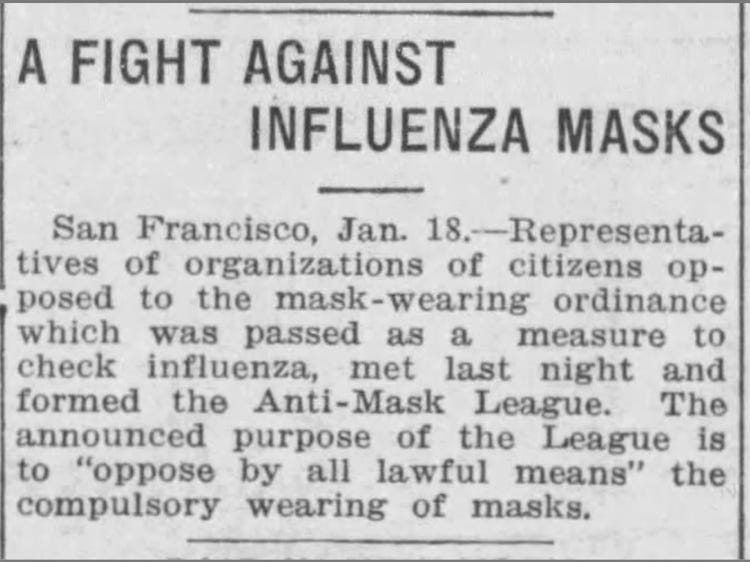Since I began writing Bourke Accounting blogs, I’ve written about unscrupulous tax preparers pumping up fake deductions and I’ve written about illegal practices of stockbrokers. I’ve even written about people claiming kids who are in the sole custody of exes. The amount (and diversity) of shady and petty things we get up to is astounding.
I stumbled across something yesterday that really exemplifies some bad apple taxpayers of the past. The interesting thing about what I have learned is that implications of deception were almost instantly apparent.
With incredulity, I give you The Tax Reform Act of 1986. Under this reform, taxpayers were obligated to include the social security numbers of any dependents aged five or older on their tax returns (SSA.gov). For some of us, we can’t remember a time when a social security number wasn’t required; including our socials (and that of our dependents) is as second nature as filling in first and last names. Shaking our collective head, we question: Wait, if you didn’t need an identifying number, what was to stop people from claiming as many kids as they wanted? Remember that instantly apparent deception? The tax reform was responsible for turning a big old spotlight on less than legal practices.
In 1986, tax returns listed 77 million dependents (LATimes.com). That’s a lot of kids, but perfectly understandable, considering the meager television offerings of Alf and Growing Pains. However, by 1987 (the first year the tax reform went for a spin), “only 70 million exemptions were identified” (LATimes.com). I’m no demographer, but it seems kind of strange that 7 million kids all turned 19 the same year. And in terms of money, this wasn’t the same as taking a penny from the little tray at the store register: 1987 filers ended up paying an “extra $2.8 billion in taxes” (LATimes.com). I can just picture armies of 80s IRS agents smiling gently and saying, “we foxed you, you bad, bad civilians.”
Perhaps it was because of the stark evidence of ne’er do wells in our midst that Congress, in 1988, decided to join the game as Player 2. Congress’ idea was for all parents who took “a special tax credit for childcare expenses to identify their daycare providers” (WashingtonPost.com). Likes socials, this is another simple requirement that we’re all accustomed to. It was most likely a result of those 7 million kids who all grew up at once, but by 1989, “2.6 million babysitters” (CSMonitor.com) also disappeared. Without those caregivers, taxpayers claiming the credit dropped by 30 percent (CSMonitor.com), decreasing credits from “$3.7 billion in 1988 to $2.5 billion in 1989” (WashingtonPost.com).
Since these new rules have come into effect, one would think taxpayers would stop claiming invented children. You should know better. As recently as 2011 Norma Coronel was given an 18-month Federal prison sentence and ordered to pay $302,186 to the IRS (LATimes.com) for tax fraud. After having one kid, she “applied for and obtained Social Security numbers for at least 20 fictitious children” (LATimes.com). She claimed that she had all of these kids on the same day and, uh, well, I guess no one thought that was weird.
There’s nothing I hate more than a thief. Well, except for a stupid thief. I’ve said it before, but paying taxes is paying for the upkeep and future of our country. As citizens, it’s our job to pay our share and to play the game fairly. You know, those streets don’t fix themselves with happy thoughts.
At Bourke Accounting, the customers are always right – unless they’re not. While Bourke Accounting experts like kids, they’re not willing to play catch with fake ones. Your Bourke Accounting bookkeeper or tax preparer might not be keen on bending the rules, but with their vast knowledge and skill, there’s never any reason for them to cross the moral, or legal, line.
Come see us any time. Our number is 502-451-8773 and don’t forget to visit our website at www.bourkeaccounting.com. See you soon!
Written by Sue H.
Bourke Accounting doesn’t believe in body shaming. This is not because Bourke employers fear lawsuits; this is because body shaming is cruel, infantile and inappropriate. In addition, my Bourke boss, Bill, understands that a hostile work environment inevitably leads to a decrease in work production. While Bill might be a decent fella, the bottom line is still definitely important to him.
Unfortunately, not all workplace cultures avoid body shaming. In fact, at some places, body shaming is so rampant and casual that one begins to ignore it. For instance, I once had a job where comments about my weight were a daily occurrence. Being on the thinner side, I was constantly accused of being on drugs (I’m not) or having an eating disorder (I don’t). It got to the point where I began absently responding to the nickname, “Bones.”
While being equated to the Crypt Keeper didn’t make me feel great, at least I was openly insulted. For people in heavier bodies, an insult is often wrapped in “good” intentions. For example, during lunch, a co-worker can “sweetly” ask a heavier co-worker if s/he really needs another slice of pizza. The question is obviously offensive and publicly humiliating, but the co-worker can argue that it was only asked out of concern for a colleague’s health. Call me Crypt Keeper all day if it means I won’t be subjected to wide-eyed, “oops, didn’t mean to” abuse.
In early 2020, USNews.com reported that more than 40% of Americans are obese, with 1 in 10 qualifying as severely obese. Because of these statistics, it would make sense if weight discrimination in the workplace was declining. However, that’s not the case. According to a study by the National Association to Advance Fat Acceptance, “obese adults are 37 times” more likely to endure bias regarding employment; the severely obese are 100 times more likely (WestSoundWorkforce.com). According to Forbes.com, employers could possibly justify not hiring larger applicants, as the losses for “obesity-related absenteeism is estimated to be $8.65 billion per year.” To make everything just perfect, another study found that “61% of [poll] respondents did not consider negative remarks about weight to be offensive” (Forbes.com).
Why does body shaming exist in professional environments? The simple answer is because it’s “legal in almost all states” (Bustle.com), except for Michigan and a few scattered cities (Time.com). We all know that discrimination based on sex, race and religion is illegal, but discrimination regarding weight is okey dokey. However, there are two occasions where this sort of prejudice wouldn’t stand. For example, if weight is only mentioned in connection with one sex, there could be a basis for a sexual harassment complaint (Bustle.com). The second circumstance is if the comments “could relate to someone’s disability status” (Bustle.com), as disability discrimination is prohibited under the Americans with Disabilities Act.
In my own situation, it must be admitted that my fellow employees were savages towards everyone. While I was made fun of for being too thin, my other co-workers were ridiculed for being too tall, too short, too heavy, too hairy or too stinky. We all know it’s not nice to speak negatively about a person’s appearance, so we shouldn’t do it – don’t make the workplace Eighth Grade – Part II.
Bourke Accounting professionals aren’t tacky and they know how to stay in their lane. No matter where on the spectrum your weight falls, you won’t hear about it from your Bourke Accounting bookkeeper or tax preparer. While Bourke Accounting specialists will have to ask you personal questions, your dietary habits will never be one of them.
Come see us any time. Our number is 502-451-8773 and don’t forget to visit our website at www.bourkeaccounting.com. See you soon!
Written by Sue H.
I watched The Purge for the first time last year. I didn’t find it to be a charming story on film and the live-action version certainly isn’t any more endearing. We’re doing this wrong. From tips to toes, we are doing this entire thing all wrong. Protesting deplorable actions is a good thing. Police officers protecting bystanders and businesses is a good thing.
So, why is it that we’re getting everything wrong? The amount of violence in our streets is ridiculous. Peaceful protests are turning violent within seconds; police and protesters are ripping each other apart. Is this mob mentality taking control or is it simply stark evidence of deep-rooted resentment and hatred flowing through everyone involved? Or is it both?
For example, on May 30, eight young men brutally beat an unarmed woman with their fists and with 2X4s in front of a shop. There is clearly nothing that says “justice and equality” quite like a group of men punching a lone woman in the head. So, don’t you worry, Status Quo, not matter what social changes are made in the future, it will, most likely, still be permissible to humiliate and hurt women. After all, we can’t have too much progression at once.
What else? Oh, let’s not forget 77-year-old retired officer and security guard David Dorn, who, on June 2, was shot and killed by Stephen Cannon. What was the retired officer’s crime? He was responding to an alarm at the pawn shop he watched over. Mr. Dorn, who had nothing to do with the travesty that befell George Floyd, lost his life anyway. For what? Pawn shop trinkets?
Obviously, we must not ignore what the police have been up to. Who could forget Officer Vincent D’Andraia, NYPD’s Newest Hit Maker, shoving Dounya Zayer to the ground, causing a concussion. Naturally, he had to remind her that she’s a “stupid f——- b—-” (Businessinsider.com) as he pushed her. He showed her that standing peacefully won’t be tolerated on his watch.
And then there was the stellar performance of Buffalo, NY cops as they gracelessly pushed Martin Gugino, causing him to fall and hit his head. Mr. Gugino, bleeding in the video, “suffered a brain injury as a result” (NBCNewYork.com). Although the White House Bunker Squatter accused Mr. Gugino of being some super deadly “ANTIFA provocateur” (NYTimes.com), I’m not sure the 75-year-old man was posing enough of a threat to warrant brain damage, anarchist or not.
We’re doing this wrong. The police are causing violence to prevent violence; the people are causing violence to protest violence. We must realize that behind the badges and behind the protest signs are real humans, scared and angry. Not every cop is an evil tool of the devil and not every protester is a blood-thirsty criminal (and to be clear, it must also be noted that not everyone out in the streets are even legitimate protesters. Some are merely opportunists). It must also be remembered that the innocent bleed the same color as the guilty. We must stop burning each other down and start putting ourselves back together.
Bourke Accounting professionals share your confusion. At Bourke Accounting, we look forward to a peaceful future, changed for the better. Having your tax returns completed by July 15th isn’t going to erase the horrific images that are now playing, but consulting a Bourke Accounting specialist will ease any financial anxiety you may be feeling. If we can offer you even a tiny measure of security, it’s worth it.
Come see us any time. Our number is 502-451-8773 and don’t forget to visit our website at www.bourkeaccounting.com. Stay Sane!
Written by Sue H.
Now that I look at the title, I’m wondering if I should have called this something else…
Lawyers see a lot of divorce; real estate agents see it, too. I’d like to say tax firms, like Bourke Accounting, are exempt from such sad occasions, but that would be a lie. If you work in the financial industry, you’ve probably experienced that awkward silence that comes after cheerfully joking with a client, “Hey, [Your Significant Other] is too good to meet with me today? What’s up with that?” After the awkward silence, there’s an even more awkward explanation regarding SO’s current location. Sometimes, it’s a quick and easy divorce story: It just didn’t work out. But sometimes, sometimes there’s nothing easy about the story; heartbreak, betrayal, four-letter words, pool guys and secretaries…
Divorce is sad. Generally, when people walk down the aisle, they’re not planning the uncomfortable tax preparer meeting a few years in the future. Whether the divorce occurs because of abuse or money issues, most people simply don’t expect their “I do” to someday expand into “I do hate you.”
However, for anyone going through the Big D, I have a little bit of good news for you. If your spouse happened to accidentally fall into bed with your best friend, why don’t you sue that conniving, dirty best friend of yours?
Although this sounds mental, if you live in Hawaii, Illinois, New Mexico, North Carolina, Mississippi, South Dakota or Utah (AJC.com), it is legal to bring down a storm of litigation onto the head of your own personal homewrecker.
If you live in one of the above states and your SO left you for someone else, why not try alleging Criminal Conversation or Alienation of Affection (AJC.com)? These torts began life in 17th century England (so you know they’re classy), “based off the notion that a man ‘owned’ his wife’s affection” and anyone who turned the wife’s head, ought to be held monetarily liable (AJC.com). To win with Criminal Conversation, infidelity must be proven, generally with photos or video. It’s almost like taking your spouse to the cleaners during the divorce proceedings, but you get to exact revenge on that hotsy totsy seducer, as well.
Alienation of Affection is a little more difficult to prove, but seemingly worth it. For this offense to be effective, you must prove that a third party was responsible for your break-up. While it’s mostly used against the other woman/man, it also includes “therapists, clergy members and family members” (Divorcenet.com). For this to work, you have to prove that you and your SO had a good marriage and someone else’s “wrongful and malicious behavior directly caused the alienation” (Divorcenet.com) between you and your SO. If your mother-in-law convinces your spouse to leave you, you just might be looking at a cool payday. For example, in North Carolina in 2011, Betty Devin, the mistress (and now wife) of Donald Puryear was ordered to pay $30 million to his ex-wife, Carol Puryear (Wikipedia.org). Puryear will probably never get the money, but she made her point. I guess.
These claims are stupid and archaic. A third party has no responsibility to protect the sanctity of someone else’s relationship. When people get married, it’s their responsibility to stay true. These torts are akin to one engineer suing a rubbernecking bystander after the train crash. Obviously, these lawsuits are designed to sooth hurt feelings and wreak vengeance upon another person.
Your Bourke Accounting professionals have dealt with divorced clients before, so you won’t shock anyone with tales of torrid affairs. Also, your Bourke Accounting specialist can help you and your ex come to reasonable, financial terms. Bourke Accounting experts aren’t divorce attorneys, but they can guide you and your unintended to an equal and fair resolution.
Come see us any time. Our number is 502-451-8773 and don’t forget to visit our website at www.bourkeaccounting.com. See you soon!
Written by Sue H.
Bill over here at Bourke Accounting says that I complain too much. My ma says that I complain too much. When I talk about them saying that I complain too much, my friends say that I complain too much. I don’t agree with them (so they’re wrong). I don’t complain at all; I merely “express dissatisfaction or annoyance” (Lexico.com) most of the time. And that’s not complaining.
However, since I’m being painted as a whiner anyway, I am going to share three things that have been getting on my nerves recently. If you look deep within yourself (or maybe not even that deep), I believe you will agree with me:
1) People wearing pajamas in public. I don’t mean the bathrobe mailbox checkers. I mean people who get into the car, drive for 15 minutes and then spend 30 minutes shopping, all while sporting a Cookie Monster onesie. It’s especially special when you can see, by the numerous and poorly mopped up SpaghettiOs stains, how they truly love canned pasta. Obviously, public pajamas are just another indication of a decaying world. Throwing on a shirt and jeans takes less than 60 seconds, but the lives of these pajama people are clearly too action-packed to waste even a minute. Honestly, I think this practice is evidence of an increasingly careless society. It shows, perhaps, a lazy lack of respect for one’s self and others. I’m not saying we should spend 4 hours getting ready to go to the store, but we should at least wear pants that don’t have butt flaps when wandering around Kroger’s.
2) Ill-behaved children. I once watched a kid, while screaming incessantly, deliberately knock bottles of olive oil off of a store shelf. The parent crouched down, said something like, “Hey, Champ, if you don’t break anything else, I’ll buy you a Happy Meal.” And, off they went (I wonder if the parent informed workers about the slippery mess). Some parents want to be friends with their children and I don’t think this is a good idea. Obviously, when the child reaches adulthood, the parent/child relationship changes to something closer to a peer relationship, but that shouldn’t happen when the kid is 5. If little Johnny won’t stop peeing on the dog, stronger direction is clearly needed. Also, when a parent allows a child to treat her/him as an equal, the child will think it’s all right to treat every adult as an equal. If a child has ever told you to “shut your stupid mouth, stupidhead,” you know the exquisite, and admittedly irrational, rage this inspires. Child psychologists suggest that the dawn of the “helicopter” parent has created a generation of children that “never learn to manage their own behavior” (TheGlobeandMail.com), as mom and dad are constantly doing it for them. In addition, I think social media is giving children an over-inflated sense of worth and entitlement. When a child gets 20 “likes” with practically no effort, that child will believe that every single little thing they do is worthy of instant adoration – and have a tantrum if they don’t receive it.
3) People who have entire conversations using speakerphone in confined spaces. I don’t want to know who Pauly cheated with and I certainly don’t care what you’re going to do when you run into the little homewrecker. I could go on about this particular pet peeve for years….
These things annoy me. What annoys me more, though, is when a stranger tries to “fix” someone’s annoying behavior in public. As humans, we must face the fact that we are the most irritating animals on Earth and give each other a little slack. Since we’re stuck here anyway, running around like maniacs, everything will go much smoother if we quietly forgive and move along to the next aisle.
Bourke Accounting bookkeepers and tax preparers won’t look at you funny if you wear your electric blue onesie to your appointment (and I’ll stay quiet). Since Bourke Accounting experts are professionals, they have a very high annoyance tolerance. The only things your Bourke Accounting specialist care about is delivering the best and most accurate service and keeping you happy always.
Come see us any time. Our number is 502-451-8773 and don’t forget to visit our website at www.bourkeaccounting.com. See you soon!
Written by Sue H.
It’s a recession when your neighbor loses his job; it’s a depression when you lose yours – Harry S. Truman
Since I’ve started working for Bourke Accounting, I’ve learned new things; I’m not ready to complete your corporate tax return, but I’ve absorbed some information. Because of this, I was embarrassed that I couldn’t definitively list the fundamental differences between a recession and a depression. I knew that both recessions and depressions meant less money for everyone. I knew that, in 2008, the recession made finding a job nightmarish. And I also knew that The Great Depression was one sincerely dark period for America that I read about in History class.
My skimpy comprehension laid bare above is none too impressive. What is even less impressive than that is the fact that, although economists might be able to provide an intelligent definition, they’re almost as ignorant as I am regarding how to combat either.
Cashay.com defines a recession as a “period when the gross domestic product…falls for two consecutive quarters.” At this point, it should come as no surprise that The National Bureau of Economic Research has just reported that the “COVID-19 crisis has officially launched the US economy into a recession” (Finance.Yahoo.com). Cashay.com then backs up the NBER data by reminding us that all of the omens for a good old recession are in the air: unemployment, real estate slumps, lack of consumer spending and drops in business activity. Yeah, a recession warning seems legit.
According to Cashay.com, a depression is “considered a more severe and extended recession.” Basically, a depression is just your average recession on crack. What makes our current situation a lot scarier is that, besides failing businesses and bankrupted individuals, we’re also forced to contend with a disease. If, after states fully reopen, there’s an increase in corona infection, people will be reluctant to “resume shopping, eating out and engaging in other consumer activities” (NBCNews.com). Obviously, it will be hard to restart the economy if no one is out there spending.
So now that we’re dipping our toes in the recession pool, we find that the water is cold. Some articles attempt to offer guidance on how best to struggle through these times. The most common tip is to save money; Sea.Mashable.com suggests saving “3 to 6 months’ worth of monthly expenses.” I’m not sure how to tell Sea.Mashable that unemployed people, some of whom still haven’t received benefits, have nothing to save. Another great piece of advice is to use your emergency fund. Great idea, but “just 40% of Americans could pay an unexpected $1,000 expense” (CNBC.com), so what emergency fund, guys?
The final word? Take whatever help the government is offering. Literally, that’s the last bullet point in about 10 articles I’ve read. There is no encouragement given after that suggestion, either. No “don’t worry, it’ll be ok,” – nope, it’s just “hold out your hand and hope the government has something left for you.” Dare I wonder if America’s financial journalists are depressed?
I don’t believe that there will be a depression and I think that our recession will be short-lived. Trust the person who couldn’t define the words when she tells you not to worry about either. Maybe I’ve watched too many 1980s romance movies, but after everything we’ve been through, I think the underdog is going to score the winning goal and get to kiss the popular love interest at the end. Oh, and don’t worry, it’ll be ok.
At Bourke Accounting, the advice is much better than the kind given by sad writers. While our Bourke Accounting pros won’t sugarcoat your situation, they will explore every avenue to help you. Our Bourke Accounting experts won’t suggest the impossible and they sure as anything won’t tell you to hold out your hand and hope for the best. At Bourke Accounting, you will receive real assistance to battle any recession.
Come see us any time. Our number is 502-451-8773 and don’t forget to visit our website at www.bourkeaccounting.com. See you soon!
Written by Sue H.
Having an open mind is a beautiful thing. At our weekly staff meetings, Bourke Accounting employees are encouraged to share ideas. Whether it’s a proposal for a new business-related practice or a philosophical concept, all thoughts are welcomed (this extends to clients, too). Lively debates give us the opportunity to peek into each other’s minds while making things a lot more interesting.
It was during one of these meetings that someone mentioned the Flat Earth Society. I’ve heard of people who are convinced that our Earth is flat, but I never really gave it much thought. Without any study, I – perhaps evidencing a narrow mind – considered the idea on par with Lizard Men from Outer Space and 5G mind control.
Back around 500 BCE, the ancient Greeks deduced that our Earth is round. Since then, we have come to accept that we live on a spinning ball. However, in 1881, Samuel Rowbotham published Earth Not a Globe, a book arguing for the flat earth premise (Wikipedia.org). Rowbotham came to his conclusion using the “Zetetic method.” This belief system suggests that “sensory observations” are the only observations that can be trusted (Livescience.com). Therefore, if you perceive that the Earth is flat, the only possible “deduction is that it must actually be flat” (Livescience.com).
Stunningly (and incomprehensibly), the concept of a flat earth is gaining wider acceptance; YouGov reported that about one third of Americans (aged 18-24) believe our world is flat (Phys.org). Social media influencers, musicians and athletes are among the newly indoctrinated (Phys.org) and they are loud.
When confronted by any conspiracy theory, I always ask who gains from having the masses believe the party line and why do “they” want us to believe it. According to the Flat Earth Society’s website, the who in this case is every single government. The round Earth lie started during the Cold War, when all countries faked space travel to keep up with each other’s “accomplishments” (TFES.org). When the Cold War ended, the Flat Earthers contend, “space travel” programs continued to provide “them” with vast sums of money to embezzle (TFES.org). That’s right, every “astronaut,” pilot and official are all in on it.
Also, oceans don’t drip off into space because what we call “Antarctica” is actually the name of the huge sheets of ice that encircle our floating plate. No one has been there and pictures purported to be taken there are photoshopped. Not to mention, NASA guards the edges. With weaponry (Sciencesensei.com).
But, Sue, we can see other planets and they look round, so why would Earth be different? That’s easy: “Earth is not a planet…as it sits at the center of our solar system above which the planets and the Sun revolve” (TFES.org). Since Earth is so unique, it is folly to compare it with anything else we can observe in the night sky. Question answered.
Believing that the Earth is flat is pretty harmless. Although, in February 2020, “Mad” Mike Hughes – using a homemade rocket in an attempt to snap pictures of a flat Earth – did accidentally kill himself (Globalnews.ca), but this is not the norm. Flat Earthers are a calm bunch and, while I don’t share their belief, I’m happy these people are around just to make things interesting.
Feel free to discuss your unconventional views with your Bourke Accounting expert (if you can change Bill’s mind concerning anything, I will personally give you a dollar). Bourke Accounting specialists are a perfect mix of traditional bean counters and innovative iconoclasts; Bourke Accounting reps are able to think outside of the box while keeping a healthy respect for the box.
Come see us any time. Our number is 502-451-8773 and don’t forget to visit our website at www.bourkeaccounting.com. See you soon!
Written by Sue H.
Considering the current societal climate, it was natural for me to start thinking about villains. In America, we really love our fictional bad guys. For example, at Bourke Accounting, Boss Bill’s favorite is Krystle Carrington from Dynasty. I think he may be messing with me, as she’s described as a “tender, loving woman” (Wikipedia.org), but with Bill, one can never be sure. Bookkeeper Christina, self-proclaimed rapscallion admirer, immediately chose The Joker as portrayed in Suicide Squad. My favorite is Amy Elliot-Dunne from Gillian Flynn’s novel, Gone Girl. While she doesn’t share The Joker’s wholesale murderous mania, her ability to chip away the humanity of every person in her life is diabolical.
So why do we like the naughty fellas? First, and obviously, is because we need a bad guy in order to have a hero. Without the Joker (and the murdered parents), Batman would just be Bill Gates. The villain’s only function is to give the hero purpose. Also, villains add drama to what would otherwise be a boring storyline; as The Violent Femmes questioned, “Don’t you know it’s boring when it’s quiet and serene” (“Life is a Scream”)?
Purpose. Humans like purpose. Also, humans like over-the-top psychos. Look at Darth Vader. The man vaporized Princess Leia’s entire home planet of Alderaan simply to show off a new toy. Maybe it’s some part of our reptilian brain at work, but we enjoy living vicariously through antagonists. We watch someone do what they want, when they want, and perhaps feel a tinge of jealousy. Chances are, you will never get the opportunity to destroy a planet. I’m sorry.
Additionally, the idea of a villain is the idea of freedom. Villains don’t have morals, so they never experience that sleepless, “dark night of the soul.” Villains never apologize; villains never cringe after hurting a loved one’s feelings. Villains also know exactly who they are – they are the most self-aware individuals in any story. The bad guy is fully cognizant of the difference between good and evil and consistently chooses evil. We know that we can depend on the bad character to be reliably bad.
Finally, the villains always look the coolest. Think of Maleficent. Besides being way more interesting than the boring little princess and prince, Maleficent can turn into a dragon. Best wardrobe change ever.
While watching supremely intelligent, cool-looking baddies on film is great, the concept doesn’t lend itself to reality. Most real-life bad guys have the pettiest and silliest motivations behind their misdeeds. For example, there’s a guy who teargassed civilians because his fragile “masculinity” was damaged when he was forced to hide in a basement. Also, think of every man who killed his wife because he wanted to start a life with a another woman. These are clearly not super-genius villains.
Another problem with real bad guys is that they very rarely are aware that they are, in fact, the bad guy. Take racists, for instance. Whether it’s a matter of poor upbringing or sheer mad dog stupidity, most racists can’t understand that what they stand for is grotesque. They don’t comprehend that there’s a difference between being proud of one’s heritage and actively stomping on the lives and rights of those they deem “inferior.”
While we may enjoy criminals on screen, criminals in real life are frightening. Therefore, it’s up to us to actively try to be the good guys. And remember, the main job of heroes is to constantly foil the plans of the demented malcontent bent on the destruction of unity and justice.
We might not be saving the world, but make no mistake, Bourke Accounting specialists are the good guys. At Bourke Accounting, the main goals are protecting the financial stability and futures of our clients. After sitting down with your Bourke Accounting expert, you will know that a hero is supporting you all the way.
Come see us any time. Our number is 502-451-8773 and don’t forget to visit our website at www.bourkeaccounting.com. See you soon!
Written by Sue H.
Most people, including myself, keep repeating the same mistakes – William Shatner
Bourke Accounting associates are fairly civic-minded. We tend to drive the speed limit, recycle our metal and clean up after our pets. We hold doors for people, sneeze into the crook of our arms and wear masks when venturing out into the world. Of all the things that Bourke workers do, I am constantly surprised that our mask habit has proven to be the most provocative.
At this point, you can’t help but notice that masks have become politicized. Honestly, I’m a little confused; when I walk into the corner store to buy my coffee, I rarely get angry that the sign on the window warns: No Shirt, No Shoes, No Service. I simply put my shirt back on, get my large drip, 2 sugars, and go about my day. For some Americans, the mask controversy, and isolated acts of violence, is difficult to understand. And, by the way, it’s also a complete and total re-run.
Welcome back to 1919, everybody! Many comparisons have been made between the 1918 Spanish flu pandemic and our own current situation: how transmission occurs, infection rates in heavily populated areas and, yes, even the mask controversy. While the Spanish flu was raging, the city of San Francisco “enforced the wearing of masks” (Businessinsider.com) and, while most people complied, it was by no means unanimous. Starting in January of 1919, an “Anti-Mask League” (calling themselves the “Sanitary Spartacans”) formed to protest masks (Businessinsider.com). The Spartacans argued that the masks were “unsanitary, useless and a threat to their constitutional rights” (Businessinsider.com).
Interestingly enough, when the Spanish flu first made the scene, the populace didn’t really have a problem wearing masks. Since World War I was still being fought, officials and health organizations reminded Americans that wearing masks was “patriotic” in nature and helped to protect the health of soldiers who might have to return to the frontlines (History.com). The Red Cross even released a public service message labeling those who failed to wear masks as “dangerous slackers” (History.com). Since red-blooded Americans didn’t want to be responsible for a lost war (or thought of as a slacker, dangerous or otherwise), the masks were an easy sell.
However, when the war ended in November of ’18, local administrations lost their primary bargaining chip. Without the fear of infecting soldiers, citizens bristled at the continued mask requirement (History.com). Much like today, individuals gathered to protest the perceived heavy-handed command. Also, much like today, some Americans did not like being forced to protect themselves and others; they argued that a “free” country should be just that – completely and unequivocally.
Obviously, mask wearing is a personal choice. I won’t shame anyone for not wearing one, just as I hope no one will shame me for sporting my stuffy face covering. While it is a choice, it must be noted that, after mask-wearing became enforced during the Spanish flu, San Francisco’s death rate was reduced by 25% (Businessinsider.com). So, you know, just saying.
As with everything else, Bourke Accounting is even making the mask-debate easy for you – we’re open for drop-offs and mail-ins exclusively. Since Bourke Accounting professionals want to see you again next year for a proper visit, we can only hope that you’re taking care of yourselves and your loved ones. And remember: as sad and as frustrating as this re-run is, it won’t last forever!
Come see us any time. Our number is 502-451-8773 and don’t forget to visit our website at www.bourkeaccounting.com. See you soon!
Written by Sue H.
The cool thing about humans is that we are good at improvising. For example, sitting at my desk at Bourke Accounting, I looked down and noticed that I had a small hole in my pants. This did not pose a problem. I colored my knee with a black Sharpie (it’s helpful that I wear a lot of black) and the hole was no longer noticeable. This is not the first time I’ve done this. It occurs to me that I should really check my clothes before I leave the house.
This little bit of improv is low on the spontaneity ladder, but it worked. Because of this instance, I started thinking of 1981’s Raiders of the Lost Ark and movies in general. So, here are a few times that ad-libbing paid off in the moving picture shows:
1) Raiders of the Lost Ark. I’m sure you remember the scene where Indy is running through the streets of Cairo and, all of a sudden, a guy dressed in black starts whipping a big sword around. Then, Indy, cool as all get-out, pulls out a gun and simply shoots the guy. That’s not how it was supposed to happen. Harrison Ford was suffering from dysentery (I had always heard it was a hangover, but whatever) and using the bathroom a lot. He decided it would be a lot easier if he didn’t engage in a drawn-out fight pitting sword against whip and came up with the pistol angle. Steven Spielberg probably realized Ford didn’t have much in him and, to avoid an icky trip to the laundromat, allowed the ad-lib to stay (Businessinsider.com).
2) Midnight Cowboy. So, there’s that scene where “Ratso” Rizzo (Dustin Hoffman) is walking down the street and a cab almost hits him. Hoffman bangs on the hood of the taxi and yells out: I’m walkin’ here, I’m walkin’ here! A very iconic scene and a total accident. Since director John Schlesinger was making the movie on a teeny tiny budget, he didn’t get a permit to block a busy New York City street. They were shooting “guerilla-style with a hidden camera in a van” (Bestmoviesbyfarr.com) and, even while almost being hit, Hoffman stayed in character. Honestly, I don’t know how much “in character” it was – if you spend any time in NYC, trust me, you will hit the hood of a cab at least once.
3) Goodfellas. Right, you know the scene with Joe Pesci’s rant, “I’m funny how? I mean funny, like I’m a clown? I amuse you?” During the scene, everyone at the table looks visibly uncomfortable. That’s some good acting. No, that was everyone’s legitimate response because they had no idea what was going on. Earlier, Pesci had told director Martin Scorsese how, while working at a restaurant, he had inadvertently offended a “connected” man by telling him he was funny. That entire tantrum was what the man had screamed at Pesci. Scorsese loved it and told Pesci to run with it, only informing Ray Liotta (Mentalfloss.com). Scorsese wanted genuine reactions and it worked.
The human animal is good at adapting and improvising. This is useful in day-to-day living, but absolutely wonderful in art. There are, I’m guessing, thousands of examples just like the ones above that are responsible for turning a good movie into a classic. As Bob Ross said, “We don’t make mistakes, just happy little accidents.”
Your Bourke Accounting bookkeepers and tax preparers are champs when it comes to improvisation. You know that when you sit down with a Bourke Accounting pro, they already know about new laws and changes to old ones. However, there is nothing you can possibly do that will throw your Bourke Accounting expert. Bourke Accounting specialists know how to amend a return and know how to make sure damages are kept to the minimum. They are that good – rehearsed or not.
Come see us any time. Our number is 502-451-8773 and don’t forget to visit our website at www.bourkeaccounting.com. See you soon!
Written by Sue H.









